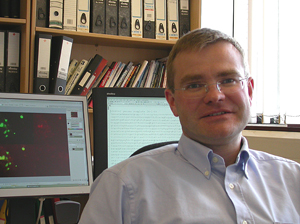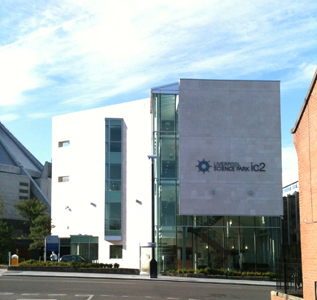

The Molecular Virology Research Group is based at the University of Liverpool and is led by Prof. James Stewart. We employ and integrative and molecular approach to study the immunity to and pathogenesis of virus infections of man and animals.
Most of my group's current research programme is centred on the use of influenza A virus (IAV), respiratory syncytial virus (hRSV) and murine γ-herpesvirus-68 (MHV-68) to study immunology, virus-host interactions and pathogenesis in the respiratory tract. These studies use virus reverse genetics combined with transgenic mouse technology, molecular pathology, transcriptomics and proteomics to dissect pathogenic mechanisms. The following paragraphs outline our current work.
The role of autophagy in virus pathogenesis
One major project, funded by the BBSRC, is the role of non-canonical autophagy (LC3-associated phagocytosis or LAP) during influenza A virus (IAV) infection in collaboration with the Wileman group (Quadram Institute) LAP is a recently-characterised phagocytic pathway that plays important roles during immunity to infectious agents including viruses. We have generated a transgenic mouse that is deficient in LAP and this is being used, along with other conditional knockout transgenic lines to discover the precise way that LAP acts in the defence mechanisms to IAV infection.
Innate host-defence function in the respiratory tract
Another significant project is the function of BPIF/PLUNC proteins in combatting influenza virus infection. BPIF proteins are secreted into the respiratory tract. We have shown that one of these, BPIFA1, restricts IAV infection in epithelial cells and also influences the immune response to IAV. We are defining the mechanisms behind BPIFA1 function as part of a current BBSRC project grant.
Development of novel diagnostics and vaccines for poultry viruses.
With Hussein Ahmed (Cairo, Egypt) and Mohammed Munir (Lancaster) and funded by the Newton Fund we are developing novel rapid multiplexed diagnostics and multi-valent vaccines for viruses that cause significant welfare and economic impact in Egypt – specifically avian influenza, Newcastle disease and IBV.
The use of Bacteroides outer membrane vesicles (OMVs) in respiratory vaccination. We have shown that Bacteroides spp OMVs expressing recombinant proteins are extremely effective in generating a strong specific mucosal IgA and IgG response. With Simon Carding (Quadram Institute Bioscience) we are now taking this forward to develop potential vaccine candidates against respiratory pathogens starting with influenza A virus and peste de petit ruminants.
Malignant Catarrhal Fever in Cattle
Malignant catarrhal fever is a fatal lymphoproliferative disease of cattle, bison and deer. We have developed a toolkit to study OvHV-2 and determined that OvHV-2 is endemic in non-diseased cattle, being vertically as well as horizontally transmitted. The ultimate goal is to design a vaccine and therapies for malignant catarrhal fever.
Novel interventions in Kaposi’s sarcoma
With Adrian Whitehouse (Leeds) and funded by an MRC project grant, we are working on developing novel inhibitors of KSHV replication that will be of use in treatment of KS. A large part of this will be using the murine gammaherpesvirus to test compounds for efficacy in a pre-clinical mouse model
Further information on projects, group members and additional online resources can be found by browsing the relevant pages on this site




